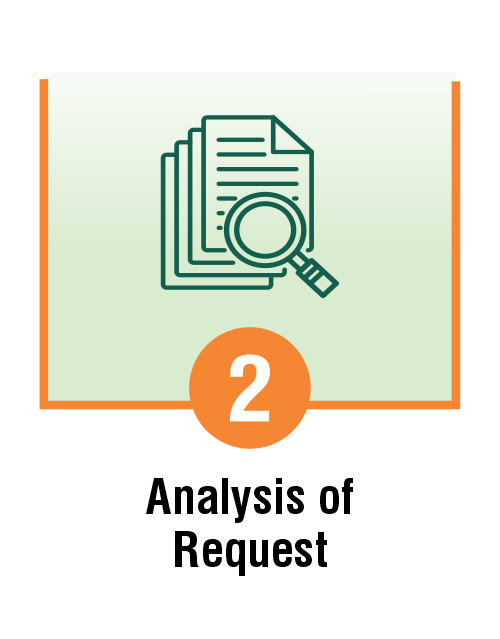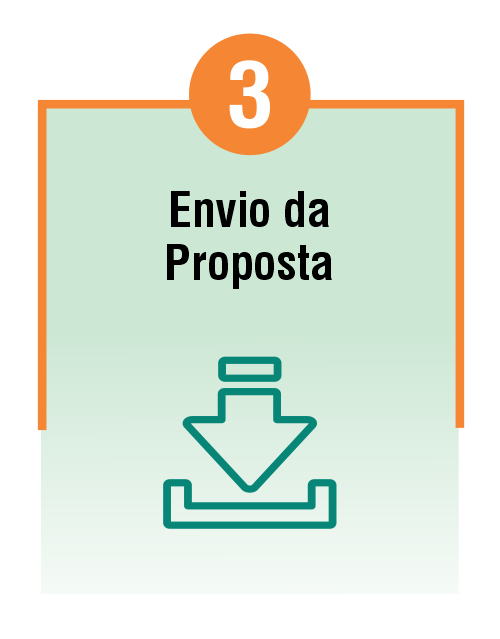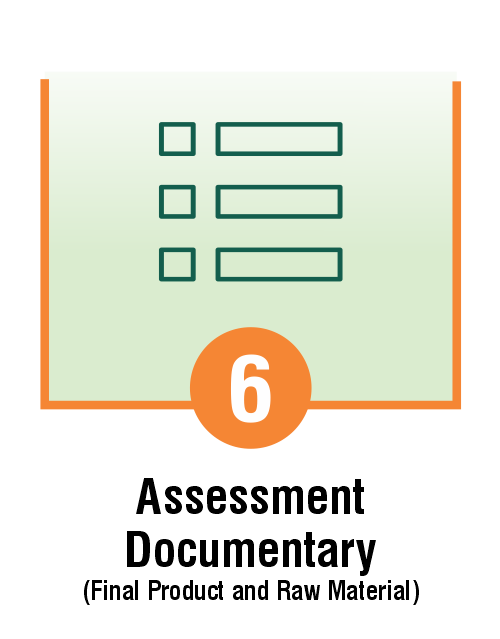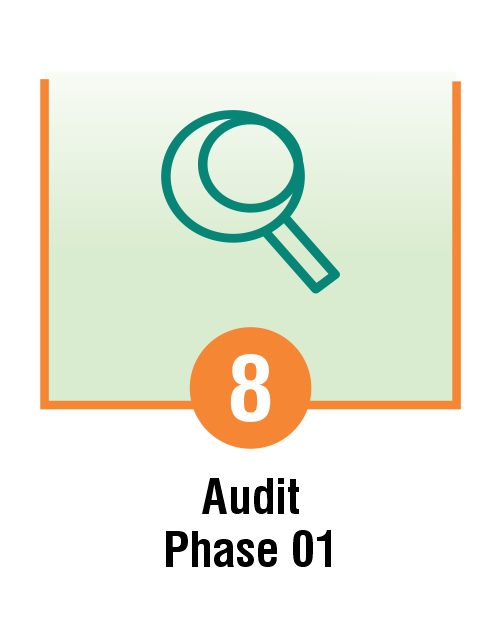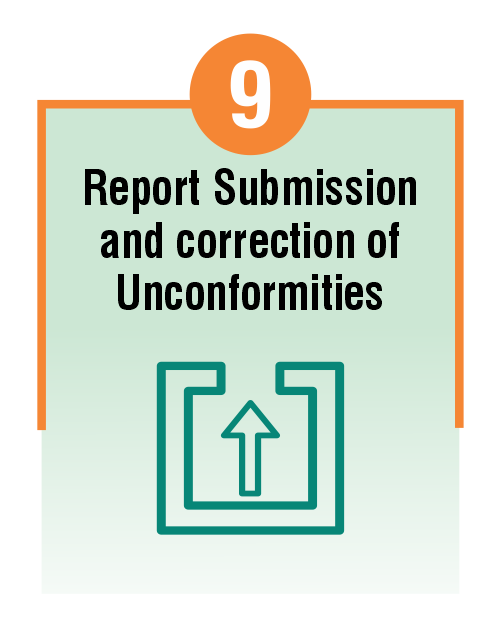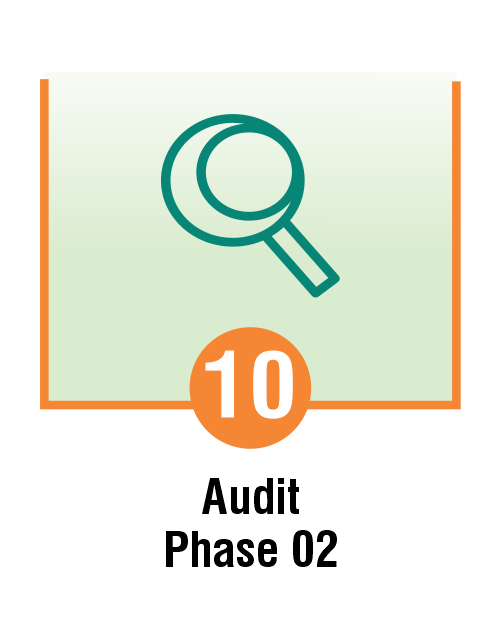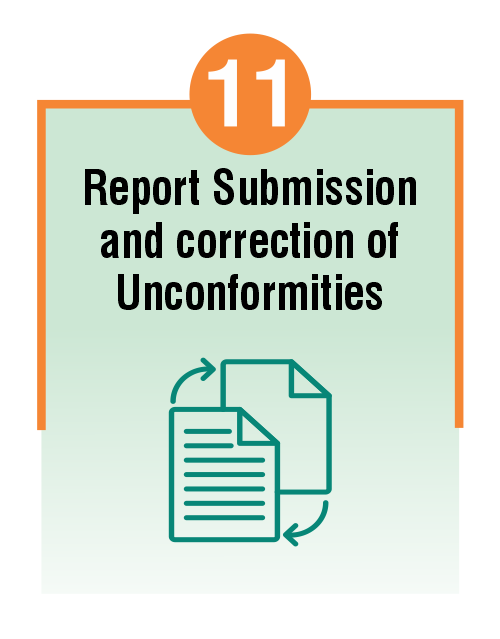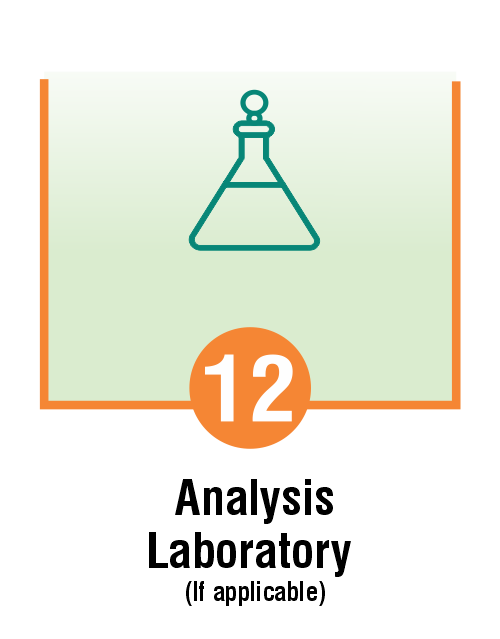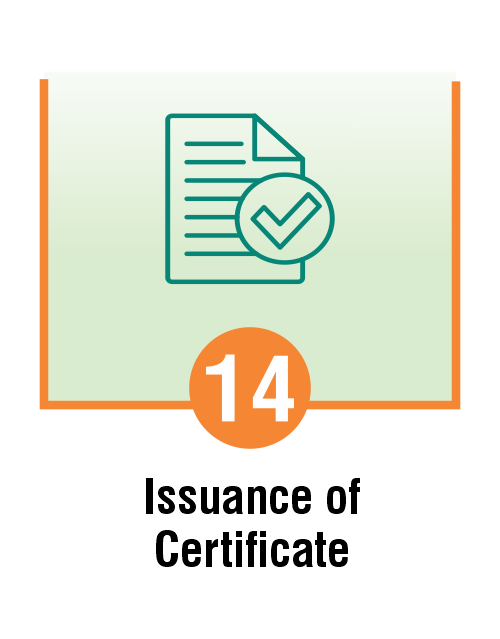How to certify?
Halal means “lawful”, also translated as permissible
The first stage of the certification process is to send the certification request with the main information about the production process of the products to be certified.
The certification analysis is carried out by the FAMBRAS Halal team and the audit time is calculated. After acceptance of the proposal and signature of the contract, the team carries out the entire documentary evaluation of the product and raw material.
The initial audit process consists of two stages: stage 1 audit and stage 2 audit. The objective is to seek the conformity of the process in accordance with the requirements established by international standards. If an audit finding is evidenced at any of these steps, the company must submit evidence of correction and corrective action. Only when the audit finding is completed, will the certification process continue.
Whenever there is a need for laboratory analysis, samples are collected during the audit. The analyzes carried out are animal PCR (pork, cattle and chicken) and gas chromatography of residual ethanol. The need for each analysis is assessed by the FAMBRAS Halal team, depending on the risk for Halal. Analyzes are performed only by ISO 17025 certified laboratories.
With the conclusions of the audit, the certification decision is made by a Decision Committee composed of at least two religious specialists, a technical specialist and the technical manager. All committee members are not part of the audit process, ensuring the impartiality of the entire certification process.
If approved, payment is made and the certificate is issued.
Main advantages of Halal certification
Meet the demand of 1.9 billion Muslim consumers;
Add value to the product and its image, being recognized as a quality, safe and sustainable product;
Overcoming barriers to entering countries where certification is mandatory;
Access a growing market estimated at $5.6 trillion;
Increased profitability, as Halal certification can significantly increase the marketing power of your products.
The FAMBRAS Halal procedures, sent to all applicants, clients and interested parties (upon request), contain a description of the rights and duties of applicants and clients, including requirements, restrictions or limitations on the use of the FAMBRAS Halal name and certification mark, and information about procedures for handling complaints and appeals.
PR 7.1 - Conditions for concession, surveillance, extension, reduction, suspension, cancellation, termination, and renewal of halal certification
PR 4.1 - Conditions for using certificates and conformity marks
PR 7.13 – Complaints and appeal procedure.
Click here to request the documents
FAMBRAS Halal Fee Policy
In accordance with the principles of impartiality, transparency, and ethics, FAMBRAS Halal makes its Fee Policy publicly available.
The annual base rate for Halal certification is USD 1,000 per man-day, applicable to the headquarters in Brazil and both international branches.
The number of man-days required to perform the audit is determined based on the duration calculation established in accordance with SMIIC 02, UAE.S, and GSO 2055-1 standards. This calculation takes into account several factors, including but not limited to:
Product categories to be certified;
Number of sites included in the certification scope;
Quantity, variety, and complexity of the certified products and lines;
Organizational size and structure, including number of employees;
Number of HACCP studies (when applicable);
Existence of other certified management systems (e.g., ISO 22000, BRC, ISO 9001);
The final quotation is prepared after a detailed analysis of the application and aligned with each company’s profile, ensuring a competitive, fair, and accessible standard.
FAMBRAS Halal reaffirms its commitment to providing reliable, ethical, and professionally conducted certification services in accordance with the highest standards.
For more information or to request a detailed proposal, please contact us by
clicking here.






